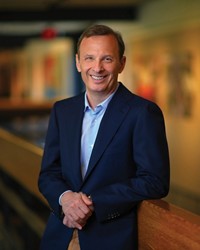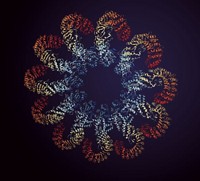Advertisement
Grab your lab coat. Let's get started
Welcome!
Welcome!
Create an account below to get 6 C&EN articles per month, receive newsletters and more - all free.
It seems this is your first time logging in online. Please enter the following information to continue.
As an ACS member you automatically get access to this site. All we need is few more details to create your reading experience.
Not you? Sign in with a different account.
Not you? Sign in with a different account.
ERROR 1
ERROR 1
ERROR 2
ERROR 2
ERROR 2
ERROR 2
ERROR 2
Password and Confirm password must match.
If you have an ACS member number, please enter it here so we can link this account to your membership. (optional)
ERROR 2
ACS values your privacy. By submitting your information, you are gaining access to C&EN and subscribing to our weekly newsletter. We use the information you provide to make your reading experience better, and we will never sell your data to third party members.
Business
BMS to buy start-up Padlock
Deal worth up to $600 million adds small molecules for autoimmune disease
by Lisa M. Jarvis
March 25, 2016
| A version of this story appeared in
Volume 94, Issue 13
Bristol-Myers Squibb will pay up to $600 million to acquire Padlock Therapeutics, a biotech firm developing small molecules for autoimmune diseases.
Padlock, which C&EN named one of 10 Start-ups to Watch last year, takes a contrarian approach to autoimmunity. Whereas drug development for diseases such as arthritis and lupus mostly focuses on dampening the activity of an immune system gone awry, Padlock believes immune cells are actually responding to normal enzymes called protein arginine deiminases (PADs) that have escaped their cellular homes.
The biotech firm is developing small molecules to block the activity of PADs, which are responsible for changing an arginine to a citrulline on proteins found inside cells.
Padlock has been in expansion mode. Launched in 2014 as a virtual biotech that relied on the contract research organization Evotec to do key chemistry work, the company recently set up its own labs and brought on a cadre of scientists.
Although Padlock had been in talks with investors to raise more money, its PAD-blocking small molecules also intrigued potential drug company partners. Ultimately, BMS, which has a healthy pipeline of small molecules and biologics for autoimmune diseases, won out.
“Two years ago in the frothy biotech market, we might have made a different choice,” says Padlock CEO Michael Gilman. But the deal with BMS gives investors, who put $23 million in the company’s first round of financing, a healthy return while leaving the programs and researchers in good hands, Gilman says.




Join the conversation
Contact the reporter
Submit a Letter to the Editor for publication
Engage with us on Twitter